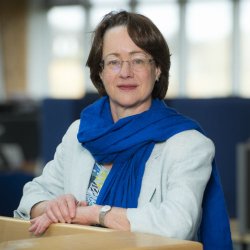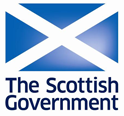The Initiative for Carbon Accounting (ICARB) is a group of academics, policy makers and professionals working to create a set of transparent, consistent and accurate rules for carbon accounting.
Since our work began on carbon accounting in 2005 we have organised 24 high level workshops and 5 conferences to foster the development and dissemination of best practice in carbon accounting between more than 500 people from over 100 different organisations. In November 2011 ICARB held the 4th International Conference on Carbon Accounting to scope out the wide range of stakeholders in carbon accounting across all sectors. The 5th International Conference on Carbon Accounting was held in March 2013 and focused on developing ‘Rules and Tools’ for carbon accounting in Scotland and the USA.
These events have been extremely useful in building a network of experts that will form the core of our planned Expert’s Directory. The growing compendium of presentations on carbon accounting for all sectors will be added to with a library of Case Studies and Accounting Methods and Tools, all aimed at helping to capacity build a generation in proper carbon accounting practices.
For more information on our activities in 2011 download the ICARB 2011 Report
More information
Advisory Board
ICARB is run by an Advisory Board primarily made up of academics from universities across Scotland.
Professor Sue Roaf, Heriot-Watt Universty – Chair

Sue is best known as a designer for her Oxford Ecohouse which was the first UK building with an integrated photovoltaic roof. She is an award winning designer, teacher and author and is Co-Chair of TIA, the international Teachers in Architecture organisation and Co-Chair of the Westminster Carbon Counting Group. She has also chaired a number of International Conferences including the 2nd International Conference on Solar Cities in 2006, the 1994, 2001, 2004, 2006 and 2008 Windsor Conferences on Thermal Comfort (with Fergus Nicol), and the 1995, 1998, 2000, 2002 and 2008 TIA conference on Architectural Education (with Marco Sala).
Visit Sue Roaf’s professional website
Dr Rachel Dunk, Crichton Carbon Centre

Dr Rachel Dunk is Academic Director at Crichton Carbon Centre and has been a part of the team since it was founded in 2007. Rachel has an extensive research background covering biogeochemical cycles and global environmental change. After completing her PhD, Rachel took up a fellowship at the Monterey Bay Aquarium Research Institute in California where her research focused on the behaviour, fate and impact of carbon dioxide in the ocean with implications for ocean storage of carbon dioxide, potential leakage of carbon dioxide from sub-seafloor storage sites, and the high carbon dioxide low pH ocean.
Visit Rachel Dunk’s professional website
Dr Keith Baker, Glasgow Caledonian University
Dr Keith Baker is Research Associate in Sustainable Urban Environments at Glasgow Caledonian University. Along with Prof Sue Roaf he co-founded ICARB (then the Scottish Carbon Accounting Group) in 2007, and is co-author of the book Carbon Management in the Built Environment (Routledge, 2012). He has a background in environmental science and science and technology policy, and his main research interests relate to energy and the built environment, with clients including the Scottish Government, ClimateXChange Scotland, and Historic Scotland. Keith also specialises in electronic waste and environmental impact of technology, on which he is a columnist for The Display Standard and a contributor to the Handbook of Visual Display Technology (Springer, 2012); and is a science communicator with organisations including STEMNET and the English Speaking Union.
Visit Keith Baker’s professional website
Sam Chapman, Heriot-Watt University

Samuel is currently finishing his PhD at Heriot-Watt University, Edinburgh looking at carbon assessment of energy systems. His main focus is renewable energy devices. He has recently published a paper on harmonisation of historic life cycle assessments of wind power and is conducting a full life cycle assessment of Ormonde Offshore Wind Farm. Alongside, he has set up an environmental consultancy, En-Count. En-Count provides greenhouse gas emissions accounting as well as other environmental impact assessments for businesses and their products and services.
Professor Karen Turner, Heriot-Watt University

Karen Turner joined Heriot-Watt as Professor in Economics at the start of January. Previously she was at the University of Stirling and before that the University of Strathclyde, where she completed her PhD (under the Scottish Graduate Programme in Economics) before joining the academic staff in 2004. Karen’s research focusses on analysing regional economic problems (with particular attention to labour market issues) and issues relating to energy-economy-environment interaction (for example, rebound effects of improved energy efficiency) mainly using input-output and computable general equilibrium modelling methods.
Between 2008 and 2010 Karen was one of six ESRC Climate Change Leadership Fellows, where she focussed on issues relating to pollution embodied in trade flows. A core part of her current research programme is with the other Fellows on a new ESRC-funded project titled ‘The Climate Crunch’, which will focus on considering issues relating to rights and responsibilities in governance of climate change.
Dr. Angela Druckman, University of Surrey

Angela Druckman is Senior Lecturer in Sustainable Energy & Climate Change Mitigation at the Centre for Environmental Strategy, University of Surrey. Angela’s current research takes a multidisciplinary, whole-systems approach, which encompasses issues on both the consumption and production sides of the economy. On the consumption side, her research focuses on exploring the linkages between lifestyles and carbon emissions in order to inform policies aimed at moving towards a low carbon society. This includes work on the rebound effect, in which the unexpected and unintended consequences of pro-environmental actions are investigated.
Visit Angela Druckman’s professional website
Gary Davis, Ecometrica

Gary is operations director at Ecometrica and co-founder. Gary has nine years’ worth of climate change consulting experience and has managed over 500 greenhouse gas accounting projects, in which capacity he has advised multi-billion dollar companies across many industry sectors, including oil and gas, finance, aviation, and professional services.
At Ecometrica Gary runs the greenhouse gas accounting team which operates in Europe and North America and oversees product development of Ecometrica’s world class greenhouse gas accounting packages, including the web’s foremost emission factor search engine for GHG practitioners; www.emissionfactors.com
Dr. Adam Hawkes, Imperial College London

Dr Adam Hawkes is an expert in technical and economic assessment of energy technologies and energy systems. He has experience with energy and climate change consultancy, energy trading companies, government policy development, public and private sector consultancy, and energy policy and technology research.
Visit Adam Hawke’s professional website
Dr. Vicky West, Forestry Commission

Dr. Vicky West is a Climate Change Specialist Advisor at the Forestry Commission. Based at their offices in Corstorphine, Edinburgh, she advises on accounting projects including the Commission’s Woodland Carbon Code. Vicky is a member of ICARB’s Advisory Board and has given a number of talks and workshops on accounting for land-use and forestry for ICARB.
Camilla Thomson, University of Edinburgh

Fourth year PhD student researching the carbon footprint of power generation systems. Currently concentrating on analysing electricity market data published by National Grid to estimate the carbon offset of intermittent renewables, such as wind power. She has also completed a detailed life cycle assessement of the Pelamis Wave Energy converter, with a comprehensive examination of the methodology and effect of practitioner assumptions.
Professor Gareth Harrison, University of Edinburgh

Gareth Harrison is Bert Whittington Chair of Electrical Power Engineering at the University of Edinburgh. He is Deputy Head of the Institute for Energy Systems, in the School of Engineering. He has conducted extensive research on the carbon footprint of energy generation sources and networks. His research interests include integrating renewable distributed generation into electricity distribution network, research on the impact of climate change on renewable energy sources and research on the carbon footprint of energy generation sources and networks.
Visit Gareth Harrison’s professional website
Staff
Ric Lander – Secretary

Ric is an environmental researcher and project worker based in Edinburgh. His work includes research on fossil-fuels and society, organisational development, public engagement on climate change and carbon management in universities. Ric can be contacted at enquiries@icarb.org
Members
Membership is free and open to anyone who supports the aims of ICARB. Please contact ICARB if you are interested in becoming a member and join the ICARB Mailing list to stay informed of our activities.
Supporting Organisations
The Scottish Government – Sponsor
The 2009 Scottish Climate Change Act placed Scotland leapt ahead of the rest of the world in setting stringent carbon reduction targets of a 42% cut in emissions by 2020 and 80% by 2050.In March 2011 the Scottish Government published the report Low Carbon Scotland: Meeting the Emissions Reduction Targets 2010-2022 detailing how these targets will be met. To monitor these targets, all the actors involved including central government, local government and the public sector, businesses, individuals and communities alike need to use reliable and compatible accounting systems and for the Scottish Government the value of ICARB’s work is clear. The exploration of how we can credibly and usefully account for carbon emissions from complex sectors requiring the development of innovative trans-sectoral and scalable methods is essential for correct accounting. The Scottish Government has been supporting ICARB from 2007 since its inception in Scotland adding value and currency to our mutual efforts to develop such methods.
Heriot-Watt University
The School of the Built Environment at Heriot-Watt is now one of the one of the four UK-wide Royal Academy of Engineering Centres of Excellence in Sustainable Building Design. Researchers here are working on all aspects of mitigation and adaptation to climate change on subjects as diverse as flooding, building performance, thermal comfort, material sciences, planning, housing and life cycle analysis and carbon accounting. Our vision for the Sustainable Design Centre at Heriot Watt University is to use it to capacity build a generation of designers who can challenge the status quo to build more the robust, resilient and low carbon buildings we will need in a very different future. By supporting ICARB, HWU is working with colleagues across Scotland to help lead what we hope will be a Low Carbon Enlightenment for all.
Edinburgh Centre for Carbon Innovation
The Edinburgh Centre for Carbon Innovation is a hub for knowledge, innovation and skills, connecting ‘low carbon leaders’ and networks from business, finance and the public sector to work together to deliver a low carbon future.
Glasgow Caledonian University
Glasgow Caledonian University’s work is underpinned by its strong social mission, producing internationally excellent research whilst concentrating on issues of major policy and practice relevance to individuals and communities in Scotland, the UK and globally. GCU’s support is based in the School of Engineering and the Built Environment.
Crichton Carbon Centre
The Crichton Carbon Centre is a not for profit post graduate teaching and research organisation established in 2007 with a mission to assist Scotland and the wider UK in making the transition to a low carbon economy. The Centre is a knowledge exchange organisation in structure and purpose, operating at the interface between applied research into and practical delivery of sustainability and climate change solutions.
ICARB Mission
The Initiative for Carbon Accounting (ICARB) exists to advance the field of carbon accounting to facilitate the reductions in carbon emissions necessary for a sustainable society.
Aims
- To provide a robust and transparent process that will develop, verify, validate, assist and promote recognised carbon accounting ‘rules’ and guidance across sectors.
- To provide services that facilitate consensus building and knowledge exchange between academics, policy and decision makers, professionals and community groups.
- To disseminate and promote guidance on best practice and provide a direct route to advice and support for policy and decision makers in Scotland and around the world.
Approach
- We seek to become recognised as the trusted organisation for carbon accounting in Scotland.
- We work across sectors and scales.
- We work in collaboration with other carbon accounting organisations.



